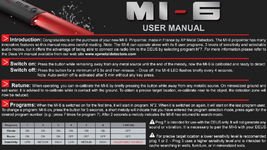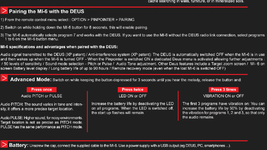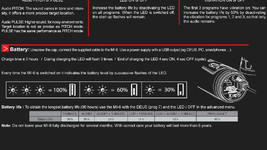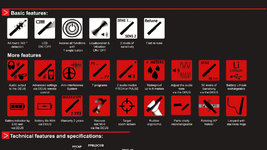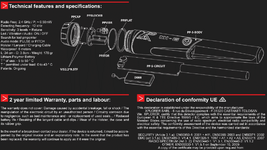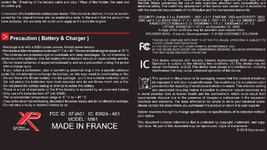OutdoorAdv
Bronze Member
- Apr 16, 2013
- 2,457
- 3,350
- 🥇 Banner finds
- 1
- Detector(s) used
- XP Deus,
GPX 4500,
Equinox 800,
AT Max
- Primary Interest:
- Metal Detecting
Why do you say higher frequencies use less power? I have heard both arguments (its higher and lower power required for higher frequencies). Not being argumentative, just interested in the theory behind it. I would have thought the opposite. Regarding remote area detecting, I would imagine that the control box would be limiting and they are not doing anything about that. Also, you could use solar recharging if you brought a spare coil and have unlimited on station time. Seems like a pretty big design change for a rather niche application. But it does have its advantages.
I totally agree man... it doesn't make sense with the reasoning being due to remote areas. I had read that somewhere and I believe it was from XP or an XP rep. I have this external battery that I take with me when I camp and detect. https://www.amazon.com/gp/product/B00X5RV14Y Its capacity is 20,100 mAh. I believe the current coil, remote and headphone batteries are like 680 mAh (or so) So with that backup battery... 20,100/680 = 29 CHARGES! So 29 charges, divided by the 3 batteries means I could recharge my whole unit from TOTALLY dead to full 9 to 10 times. ha So basically, that the small 20,100 external battery, I could detect in the woods for weeks. haha So yeah, the whole remote thing doesn't make sense to me one bit, and I too would prefer not having a cable come out of the coil.
As far as the frequencies go, the way I understood it, the higher frequencies have a shorter wavelength and lower amplitude, so they use less power... and the lower frequencies the opposite. But I'm not well versed in that at all... I typically run my Deus in 18khz and sometimes 12khz.
The latest advert XP released had some coil battery expectation numbers on it too. Here it is cropped and circled in red.
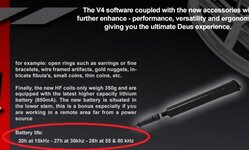


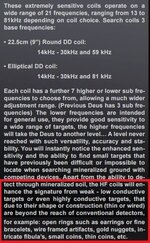

 I cannot resist commenting on puns, even when they are accidental.
I cannot resist commenting on puns, even when they are accidental.